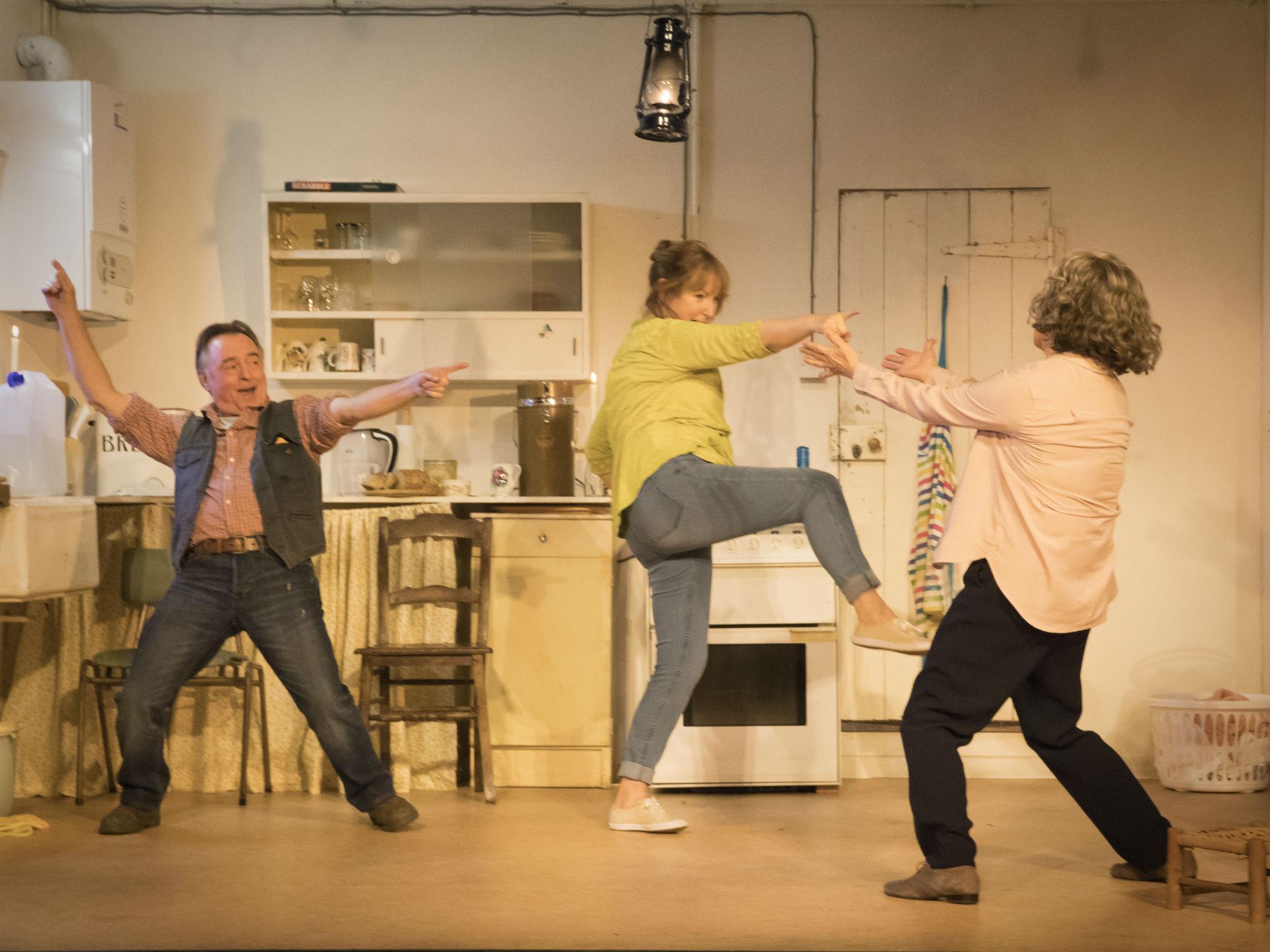The Children, Royal Court, London, review: Lucy Kirkwood is the most rewarding dramatist of her generation
Kirkwood's three-hander which centres on two retired nuclear scientists living in an isolated cottage after a Fukushima-type power station disaster will stay with you long after the curtain goes down

Your support helps us to tell the story
From reproductive rights to climate change to Big Tech, The Independent is on the ground when the story is developing. Whether it's investigating the financials of Elon Musk's pro-Trump PAC or producing our latest documentary, 'The A Word', which shines a light on the American women fighting for reproductive rights, we know how important it is to parse out the facts from the messaging.
At such a critical moment in US history, we need reporters on the ground. Your donation allows us to keep sending journalists to speak to both sides of the story.
The Independent is trusted by Americans across the entire political spectrum. And unlike many other quality news outlets, we choose not to lock Americans out of our reporting and analysis with paywalls. We believe quality journalism should be available to everyone, paid for by those who can afford it.
Your support makes all the difference.Lucy Kirkwood's new play is a richly suggestive and beautifully written piece of work, provoking questions that will continue to nag and expand in your mind long after the lights have slowly died on its extraordinary final sequence – two women performing a yoga routine while a man slops out a cottage floor and the whole stage is engulfed by the sound of underwater church bells and images of the rolling waves that can wreck and redeem. “I don't know how to want less,” is a key confession by one of the characters. A cursory glance at this latest piece might seem to indicate that – after the epic sweep of Chimerica, her award-winning play about the relationship between the United States and China – that Kirkwood herself has been prepared to settle for less with this three-hander whose drama unfolds over a single evening in a production that runs for nearly two hours without an interval. But that impression would be wholly false and philistine.
Three retired nuclear engineers converge in an east coast cottage (by implication in Suffolk, near Sizewell B) a few months into what what we gradually gather is a Fukushima-type power station disaster, caused by an earthquake. Hazel and Robin have been married for 40 years. Driven from their home by the reactor meltdown, they are now living in a borrowed cottage, unwilling to sever their ties to a region where they've always worked and where they brought up their children. Cue the arrival of a figure from the distant past. Francesca Annis's on-the-surface coolly contained and appraising Rose is a former colleague and friend who decamped and made a long career in the US. This character will eventually confront the couple with a request that throws the pressingly topical question of the responsibility of the older generation towards the younger into acute relief, with the culpably defective nuclear reactor a potent symbol of a broader range of toxic bequests.
The genius of the play, though, is to embed its preoccupations in a humane, tragicomic scenario that is never, despite the circumstances, portentous or clangingly apocalyptic in tone. It's typical that it opens with the partly farcical, partly eerie spectacle of Rose recovering from a nose-bleed, brought on by Hazel who had mistaken this woman, whom she had not seen for four decades and thought dead, for an intruder. In a brilliantly funny and sad performance, Deborah Findlay shows the fussing Hazel's ill-concealed resentment of her visitor whom she notices is suspiciously au fait with the lay-out of the cottage. She ostentatiously winds up her wind-up radio as if she were attempting to spray a swarm of flies with DDT. She kicks up a hilariously laboured fuss over what form of waste Rose has imposed on the macerator in the downstairs loo. It's the sheer comic ordinariness of the post-disaster slog, as treated by Kirkwood, that sharpens our awareness of the terrible pain of the decisions that now have to be made.
Ron Cook beautifully conveys the two-timing craftiness of Robin and the unassuming love of a man who has kept up the pretence for Hazel that the cows on their farm, which lies in the exclusion zone, are still alive when, in fact, he has been going back each day devotedly to bury them. This is a play that empathetically examines why we, the comparatively gorged, feel we have a right to anything – old age, say, as “a new and exciting chapter” or the production of children whom we may simultaneously screw up and use as an excuse for refusing to sacrifice ourselves in amends. James Macdonald's production is a miracle of tactfully shifting tones – sometimes over the course a single telephone call in which tearful denial moves to a kind of resolve or in the trio's sudden joyous, absurd, and slightly heartbreaking bop to James Brown. And, of course, there is the unforced poetry of those submerged bells.
The Children consolidates my view that the 32 year old Kirkwood is the most rewarding dramatist of her generation.
Join our commenting forum
Join thought-provoking conversations, follow other Independent readers and see their replies
Comments